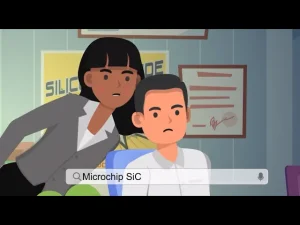How Old is the Internet?
How Old is the Internet? 
The Internet: From Inception to Future Evolution
The internet has become a cornerstone of modern life, transforming how we communicate, work, relax, research, and, well... everything. Its history is a testament to the power of innovation and collaboration. And, as technology advances, the internet is poised to evolve in ways that will further integrate it into our daily lives.
The Origins of the Internet
The internet's origins can be traced back to the 1960s when the U.S. Department of Defense funded research to develop a robust, fault-tolerant communication network. This effort led to ARPANET (Advanced Research Projects Agency Network), which connected several universities and research institutions, allowing them to share information and resources.
In 1971, Ray Tomlinson developed the first email system, introducing a new way to communicate across the network. The following decade saw the development of TCP/IP (Transmission Control Protocol/Internet Protocol), a set of communication protocols that standardized data transmission over networks. TCP/IP became the foundation for the modern internet, and ARPANET adopted it in 1983, marking a significant milestone in the internet's development.
The 1990s were a transformative period for the internet, with the introduction of the World Wide Web by Tim Berners-Lee in 1991. The web made the internet more accessible to the general public, allowing users to navigate websites using browsers like Netscape Navigator and Internet Explorer. This era also saw the rise of internet service providers (ISPs) like AOL and CompuServe, making internet access available to households worldwide.
The Internet Today
Today, the internet is ubiquitous, influencing nearly every aspect of our lives. It has become a vital tool for communication, education, entertainment, and commerce. Social media platforms like Facebook, Twitter, and Instagram connect billions of people globally, allowing them to share ideas and experiences in real-time. E-commerce giants like Amazon and Etsy have revolutionized shopping, providing consumers access to various products and services.
The internet has also transformed industries, enabling remote work, telemedicine, and online learning. The COVID-19 pandemic accelerated these trends, demonstrating the internet's critical role in maintaining business continuity and social connections. The Internet of Things (IoT) has also emerged, connecting everyday objects, enabling smart homes, cities, and industries.
The Future of the Internet
As technology continues to advance, the internet is set to evolve in several exciting ways:
- - 5G and Beyond: The rollout of 5G networks promises faster and more reliable internet connectivity, enabling new applications like autonomous vehicles, augmented reality, and smart cities. As 5G becomes more widespread, the internet's reach and capabilities will expand, supporting more devices and applications.
- - Artificial Intelligence and Machine Learning: AI and machine learning will significantly shape the future internet. These technologies will enhance data processing and analysis, enabling more personalized and efficient online experiences. AI-driven chatbots and virtual assistants will improve customer service and streamline interactions.
- - Decentralization and Blockchain: As data privacy and security concerns grow, blockchain technology offers a solution for creating a more decentralized and secure internet. Blockchain can enable decentralized applications (dApps) and services, giving users greater control over their data and online interactions.
- - Edge Computing: Edge computing will become increasingly important as the volume of data generated by IoT devices grows. By processing data closer to its source, edge computing reduces latency and bandwidth usage, improving the efficiency of internet-connected systems.
- - Quantum Internet: Researchers are exploring the potential of a quantum internet, which would leverage the principles of quantum mechanics to enable ultra-secure communication and enhanced data processing capabilities. While still in its early stages, a quantum internet could revolutionize fields like cryptography and data transmission.
The internet has come a long way since its inception, evolving from a research network into a global communication platform that touches nearly every aspect of our lives. The internet will evolve as technology advances, offering new opportunities and challenges. By embracing these changes, we can harness the power of the internet to create a more connected, efficient, and secure world.












